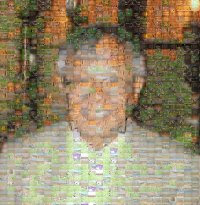Let's take a look at the big picture of the period of the first ten years of my life.
The Second Sino-Japanese War (July 7, 1937 – September 9, 1945) was a war that the "new" China decided to wage in order to stop further colonization by the Empire of Japan. Historically, the following are quoted from: http://factsanddetails.com/china.php?itemid=59&catid=2
"The Japanese hated European and American colonialism and were committed to avoiding what happened to China after the Opium Wars. They felt humiliated by the unequal treaties that were forced on them by the United States after the arrival of Perry's Black ships in 1853. But in the end Japan became a colonial power itself.
The Japanese colonized Korea, Taiwan, Manchuria and several islands in the Pacific. After defeating both China and Russia, Japan began conquering and colonizing East Asia to expand its power.
The Japanese victory over China in 1895 led to the annexation of Formosa (present-day Taiwan) and Liaotang province in China. Both Japan and Russia claimed Liatong. The victory over Russia in 1905 gave Japan the Liaotang province in China and led the way to the annexation of Korea in 1910. In 1919, in return for siding with the Allies in World War I, the European powers gave Germany's possessions in Shandong province to Japan in the Treaty of Versailles.
In some ways, the Japanese mimicked the Western colonial powers. They built grand government buildings and "developed high-minded schemes to help the natives." Later they even claimed they had the right to colonize. In 1928, Prince (and future Prime Minister) Konroe announced: "as a result of [Japan's] one million annual increase in population, our national economic life is heavily burdened. We cannot [afford to] wait for a rationalizing adjustment of the world system."
To rationalize their actions in China and Korea, Japanese officers invoked the concept of "double patriotism" which meant they could "disobey moderate policies of the Emperor in order to obey his true interests." A comparison has been made between the religious-political-imperial ideology behind Japanese expansion and the American idea of manifest destiny. [Source: "History of Warfare" by John Keegan, Vintage Books]
The Japanese tried to build a united Asian front against Western imperialism but its racist views ultimately worked against it."
Ordinary Chinese suffered a great deal under Japan's invasion. During my first six years I was too young to realize the brutality and cruelty of the war. An estimated 35 million people died during the period; 50% of babies born in 1939 did not survive to their sixth birthday. Poor Chinese! Without a day of peace they suffered both from the war with the Japanese as well as from the internal war between the Kuomintang and the Communists, a conflict which continued to keep the country in flames. In 1949, when I was ten, Mao Tse-Dong took over China. A bamboo curtain was dropped over the whole of China. This ordinary Chinese' destiny was shaped without his realization! Because we were in Taiwan, our worst nightmare was over. A great number of ordinary Chinese, on the other hand, had just started their horrifying experience!

No comments:
Post a Comment